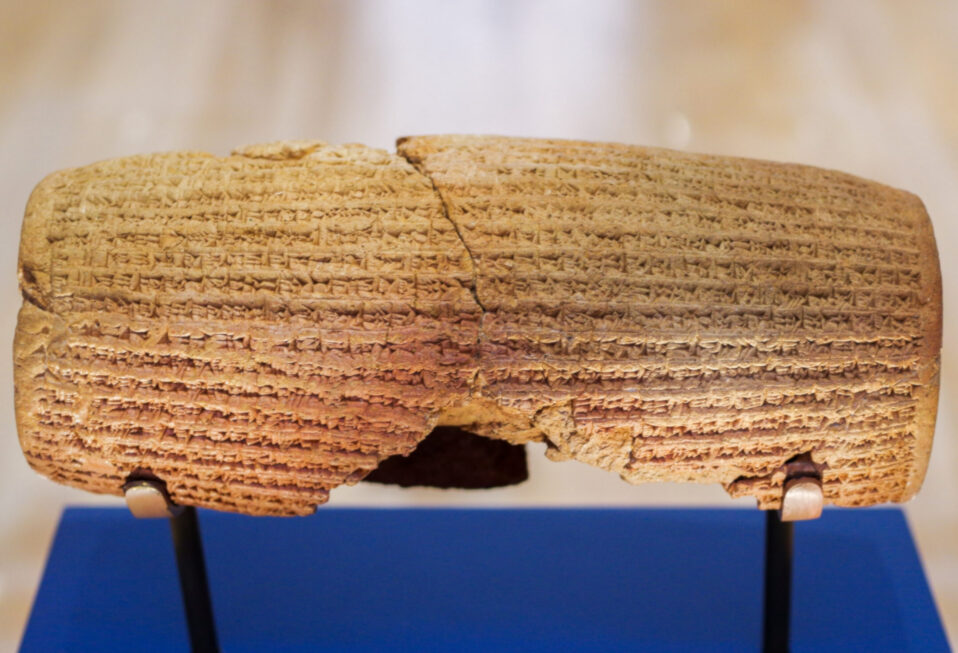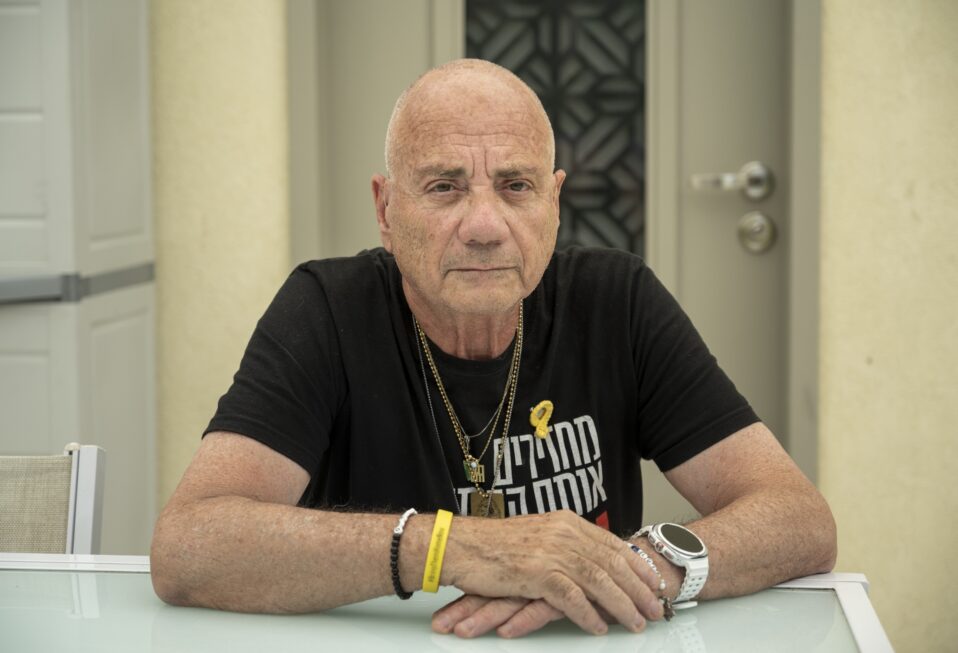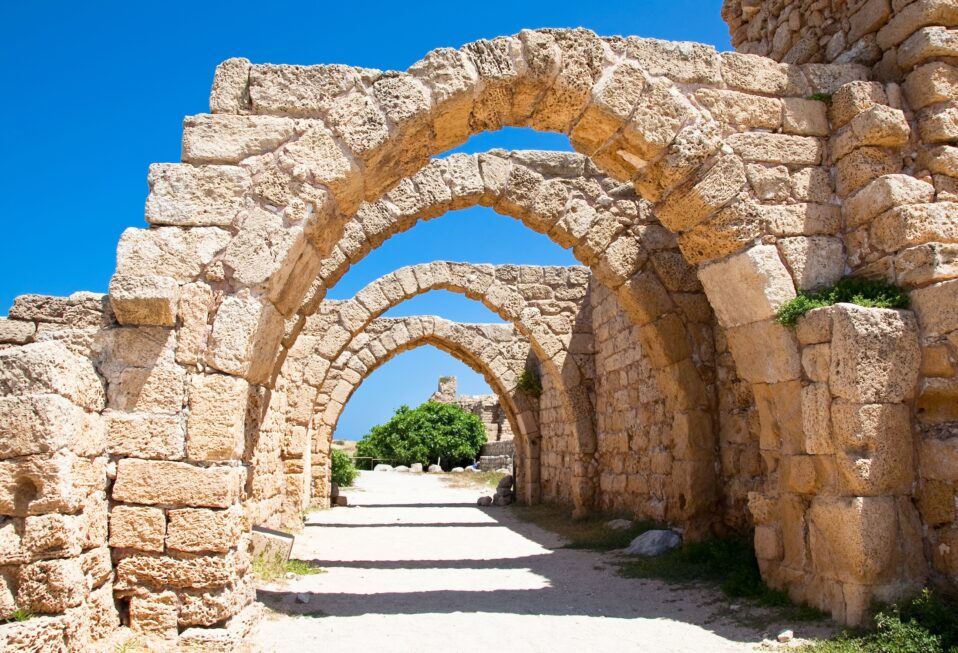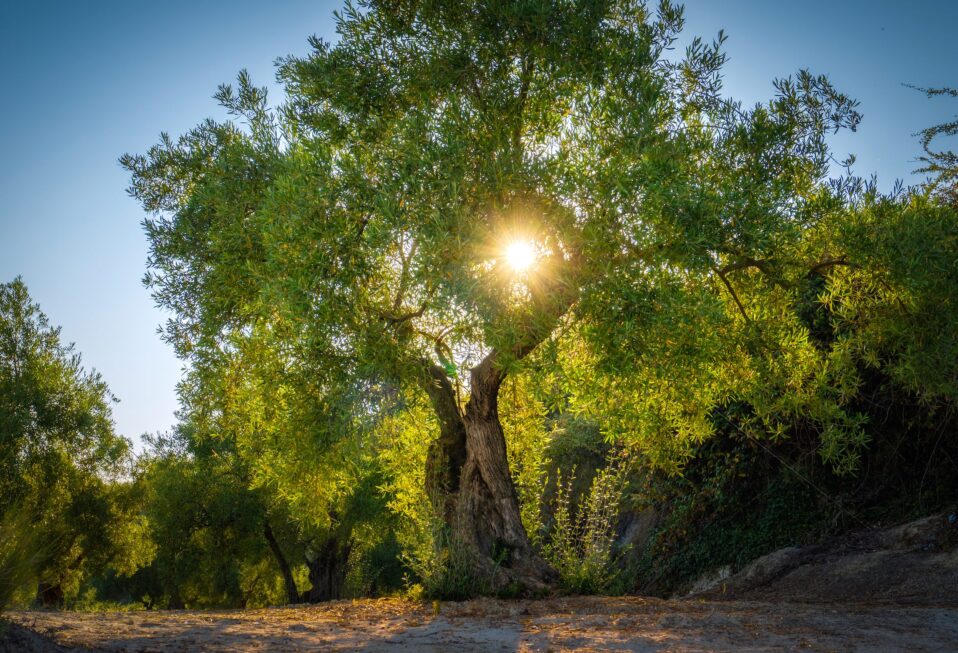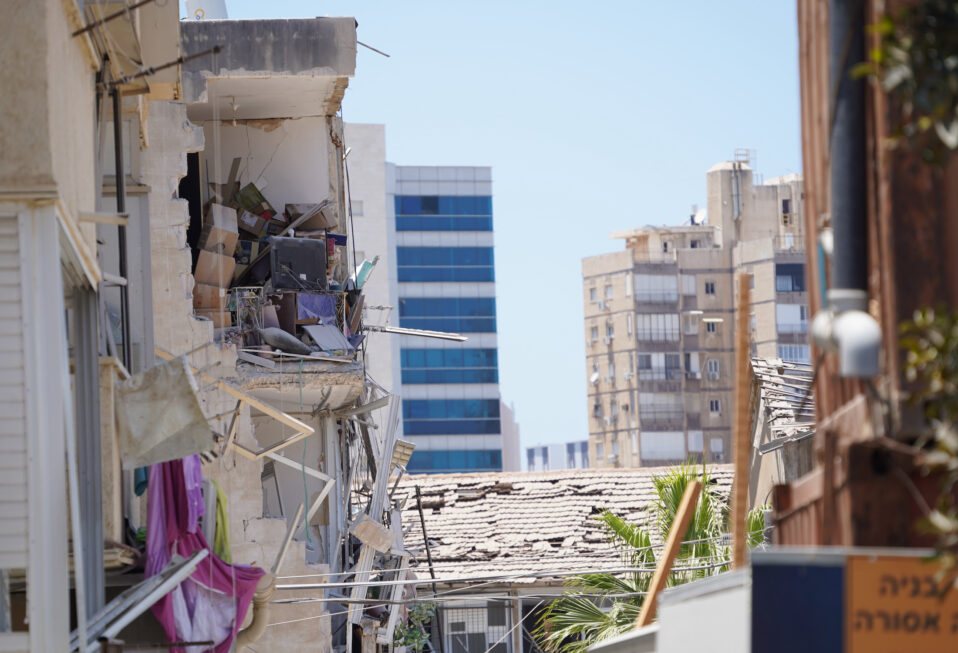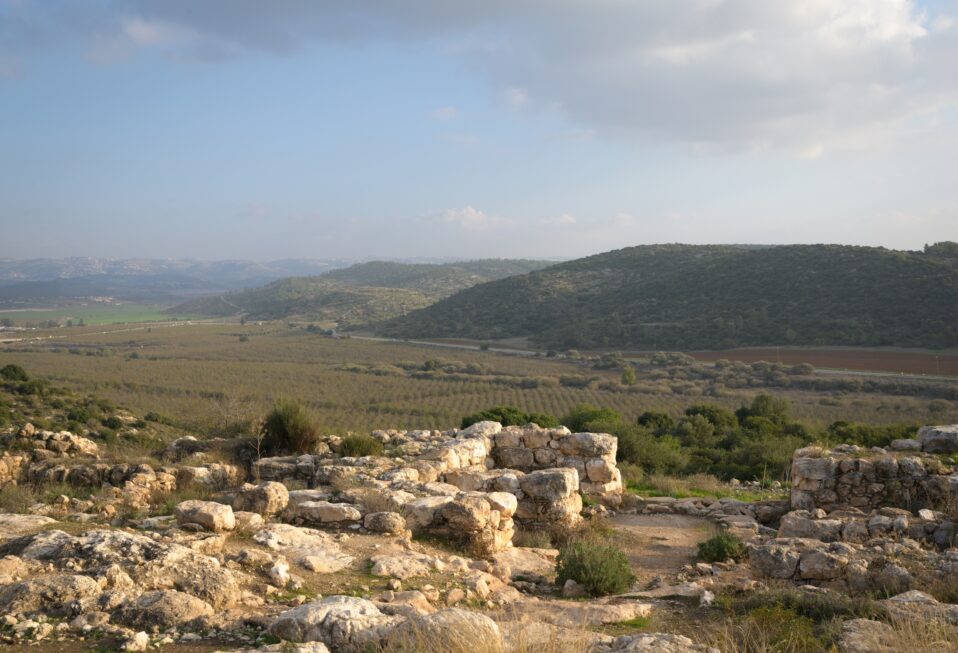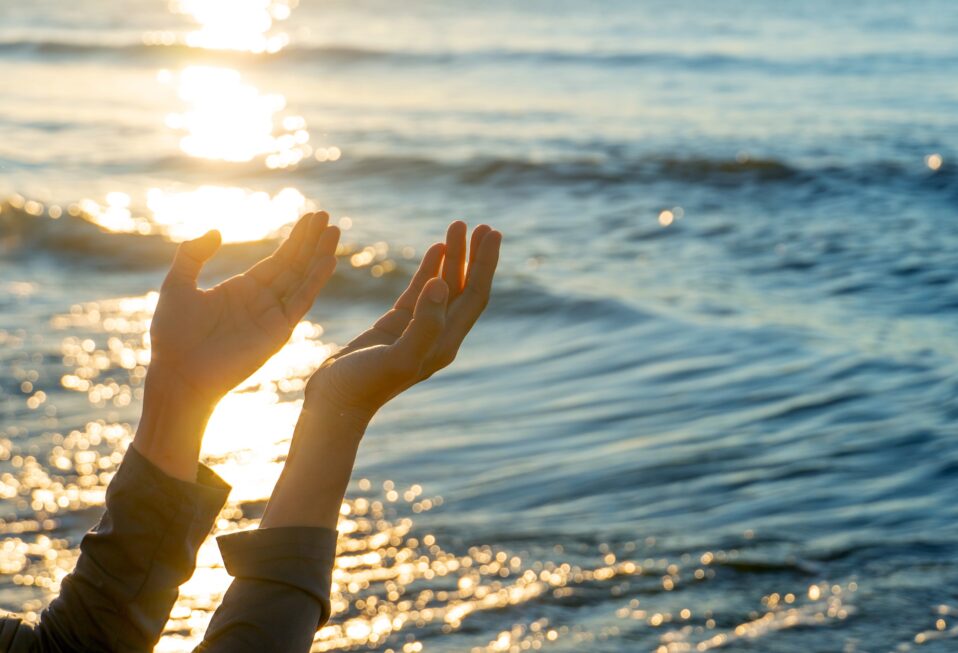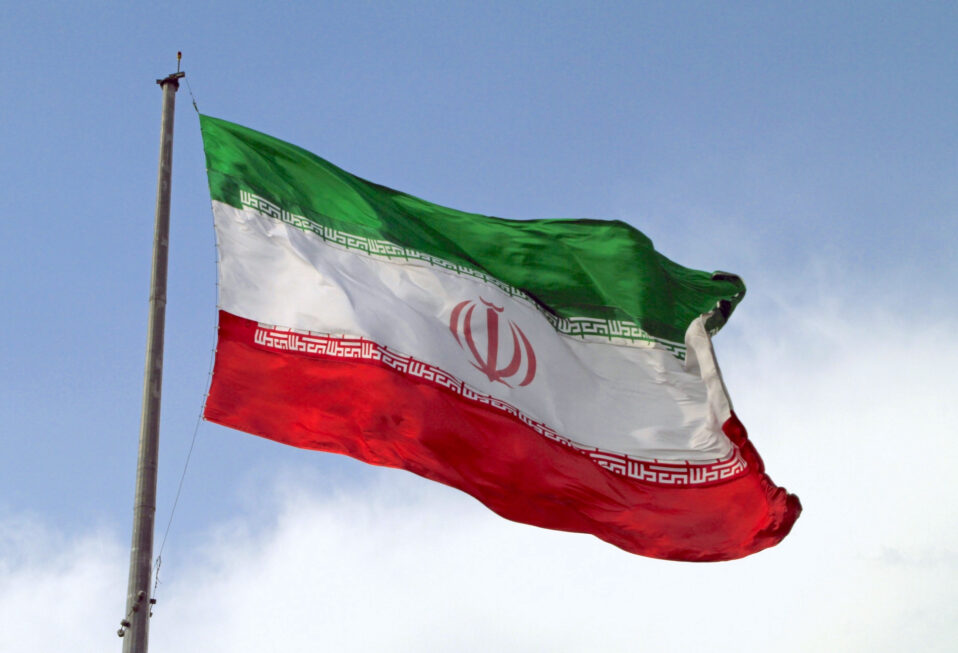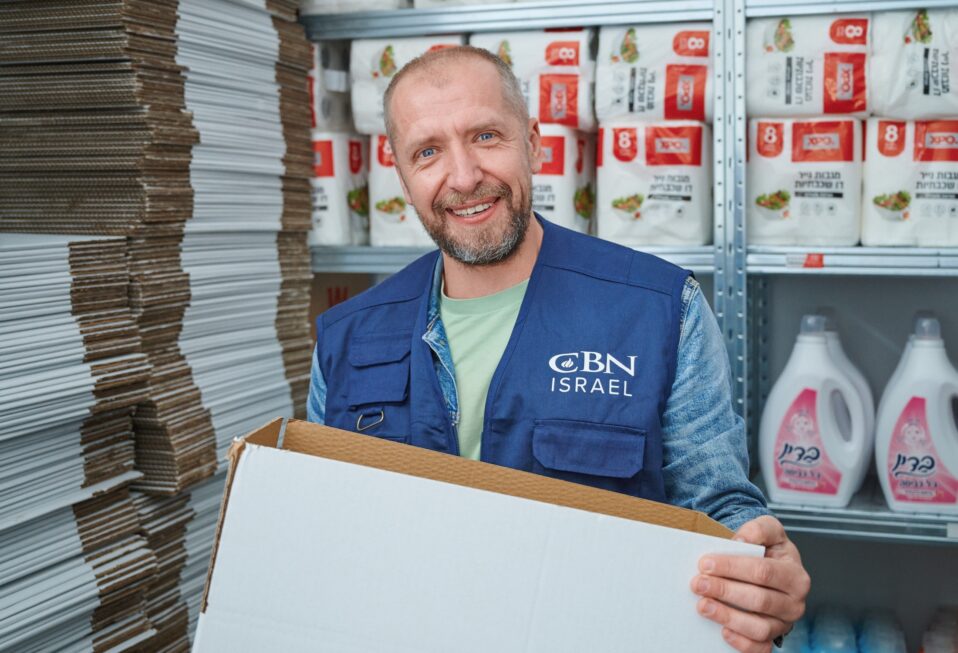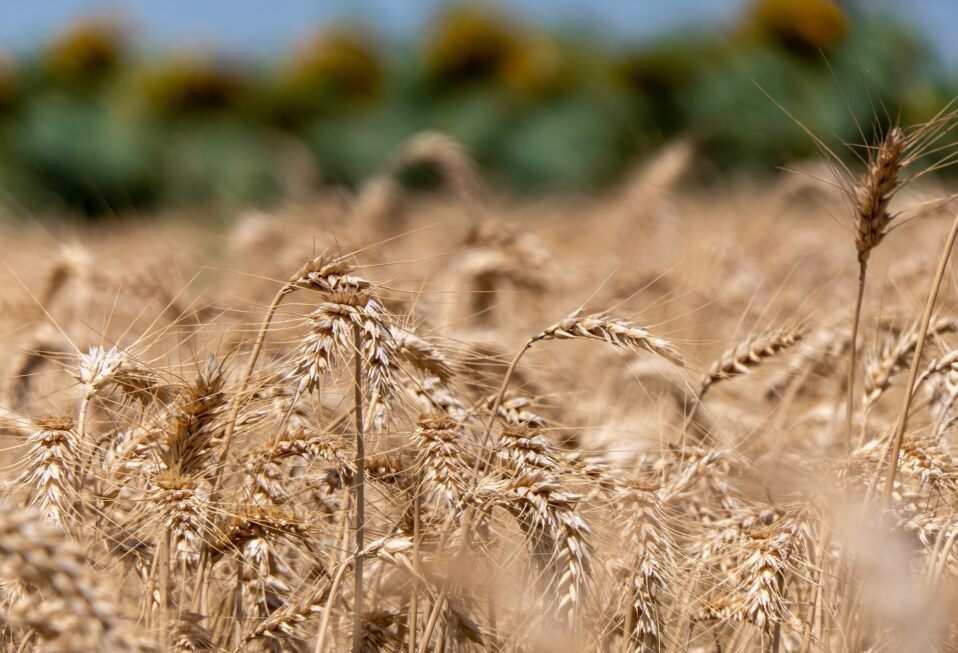By Arlene Bridges Samuels
The Islamic Republic of Iran is home to some 10,000 to 15,000 Jews, who remain as the modern remnants of ancient Jews captured in Jerusalem and forcibly deported to Babylon in 587/586 B.C. While it’s not common knowledge, even now Iran’s Jewish population is the second largest in the Middle East after Israel. Also not well known is the existence of the Cyrus Cylinder, an archaeological treasure dating from the sixth century B.C. and displayed in London’s British Museum.
Discovered in Babylon (modern-day Iraq) in 1879, the clay cylinder draws a straight line from ancient Persia to Jewish people and their history with inscriptions from King Cyrus. In part, Cyrus observes in the cuneiform text, “I took up my lordly abode in the royal palace amidst rejoicing and happiness. … My vast army marched into Babylon in peace; I did not permit anyone to frighten the people.”
Scholars often call Cyrus’s decrees for the Jews the “first charter of human rights.” Cyrus, a pagan king, allowed all the people he conquered—including Jews—to keep their religions and cultures. Today, in exploring the destiny of modern Iranian Jews we find another Middle Eastern set of complicated facts and questions.
Let’s take a moment to revisit the 70-year Jewish exile in Babylon. The annals of biblical and archaeological history recount Nebuchadnezzar’s destruction of Solomon’s Temple and eventually the rise of Cyrus the Great in 539 B.C. Why is Persian King Cyrus described as “great?” Apart from his military achievements, tolerant rule, and political astuteness, God tapped this secular ruler to liberate the Jewish exiles by repatriating Jews to their homeland.
Some 50,000 exiled Jews undertook the grueling 900-mile journey to Jerusalem. Most remained behind, however, possibly because many felt they were too old, or they preferred their good lives in Cyrus’ kingdom. The prolific prophet Isaiah mentioned Cyrus by name in Isaiah 44:28 and 45:1—some 150 years before Cyrus freed and financed not only the return of the Jews but also the wherewithal to rebuild the second Temple!
Cyrus’ words are not only inscribed in the Cyrus Cylinder but also in Ezra 1:2-3 “This is what Cyrus king of Persia says, ‘The LORD, the God of heaven, has given me all the kingdoms of the earth and he has appointed me to build a temple for him at Jerusalem in Judah. Any of his people among you may go up to Jerusalem in Judah and build the temple of the LORD, the God of Israel, the God who is in Jerusalem, and may their God be with them.”
This link gives added historical insights: [view here].
In modern times, millennia after the human-rights King Cyrus, the Islamic Regime conquered what was called Persia in 1979 and rebranded the country with its Shia Islam. Its apocalyptic ayatollahs are bent on welcoming the so-called Twelfth Imam to rule the world in the end times, an oppressive, one-sided religious governance. Their theology is light years away from the freedom-loving historic King Cyrus.
That said, surprisingly the Jewish community has lived a somewhat unrestricted life under the Islamic Regime. With 30 synagogues, Jewish schools, youth sports, kosher butcher shops, restaurants, and a matzah factory, Jews are an official religious minority and hold one seat in the Iranian parliament. Nevertheless, with upwards of 100,000 Jews living in Iran in 1979, numerous individuals and families fled to Israel and the United States before and after the revolution in waves of mass immigration.
The continuation of comparative calm for the Jewish community is now highly questionable since the Twelve Day War started on June 13. The Iranian Jewish community’s concerns are multiplying by the day. The Regime is arresting dozens of Jews, and some are held without any outside contact. Detainees include rabbis and other Jewish leaders amid a sobering headline in Israel’s Ynet Global News: “Anyone Can Disappear.”
The Regime is focusing right now on Jews with relatives in Israel. The Persian Human Rights News Agency HRANA mentions a November 2011 law that had already restricted family ties between Israeli and Iranian Jews. The Iranian Parliament banned Iranian Jews from travel to Israel. The punishment is up to five years in prison and passport ineligibility. A leader in the Tehran Jewish Association commented anonymously, “We’ve seen limited summonses during previous crises, but the current scale is unprecedented and has raised serious concerns about the psychological and social well-being of our community.”
As the world’s largest sponsor of terror, the Islamic Regime has a track record of fostering horrific evil outside its borders. But it also holds another world record: the second-highest number of executions inside Iran, according to Amnesty International. Only China outpaces Iran in that regard. I daresay all Iranians are aware of the prisons, public hangings, and hateful cries against Israel and the United States even now—in their parliament and funerals after their recent widespread losses in weapons, nuclear sites, and leadership.
I am puzzled now about the Islamic Regime’s leaders amid their war losses. When I recall the total defeat of Japan and Germany in World War II, I have concluded that Iran’s culture is so vastly immersed in cruelty and domination that it has transitioned into more than its Shia Religion. It is a literal Religion of Evil. They will not give up. Even now.
The 2,700-year-old Jewish community is walking an incredibly fragile tightrope. Some diaspora Iranians tend to think Iran’s Jews voicing support for the Regime is a survival strategy. On the other hand, the Central Jewish Committee of Tehran states that “Judaism is a religion, not a political ideology,” adding that Iranian Jews are completely separate from the Zionist (Israel) regime.
Yasmin Shalom Mottahedeh, an Israeli who made Aliyah in the 1980s, put it this way in an interview a few years ago: “The country can never be empty of Jews. It’s a community that has survived since the Babylonian exile after the destruction of the First Temple.” Yasmin concluded, “Jews have had the opportunity to leave, but those who are there have chosen to stay for a reason.”
It is impossible for us to know or understand why every Jew did not flee Iran both leading up to and following 1979. But we do know that the Islamic Regime is a deadly one. Prayers for the Iranian Jews are necessary, as the oppressive leaders attempt to rebuild the country by murdering anyone who stands in their way, Jews and non-Jews. And the ultimate prayer: That all Iranians will rise in freedom to rebuild their beautiful Persian country.
Our CBN Israel team welcomes you to join us in prayers for Iranian Jews by reflecting on King Cyrus’ quote in Ezra 1:3—“And may their God be with them.”
Prayer Points:
- Pray the God of Abraham, Isaac, and Jacob will reveal His fullness to the Jews of Iran.
- Pray that God’s heavenly armies will surround the Iranian Jewish families with safety.
- Pray that the Islamic Regime will release the Jews they arrested back to their families.
- Pray Iranian Jews will not suffer the evils leveled against Israeli Jews on October 7, 2023.
Arlene Bridges Samuels is the weekly feature columnist for CBN Israel since 2020. Working on the staff of the American Israel Public Affairs Committee (AIPAC) as their SE Regional Outreach Director for nine years, International Christian Embassy Jerusalem USA engaged her as the Leadership Outreach Director part-time for their project American Christian Leaders for Israel. Arlene is an author at The Blogs-Times of Israel, is published at AllIsrael.com and The Jerusalem Connection, and has traveled to Israel since 1990. By invitation, she attends Israel’s Government Press Office Christian Media Summits as part of Christian media worldwide. In 2024, Arlene and her husband Paul co-authored Mental Health Meltdown: Illuminating the Voices of Bipolar and Other Mental Illnesses. www.TheMentalHealthMeltdown.com.


